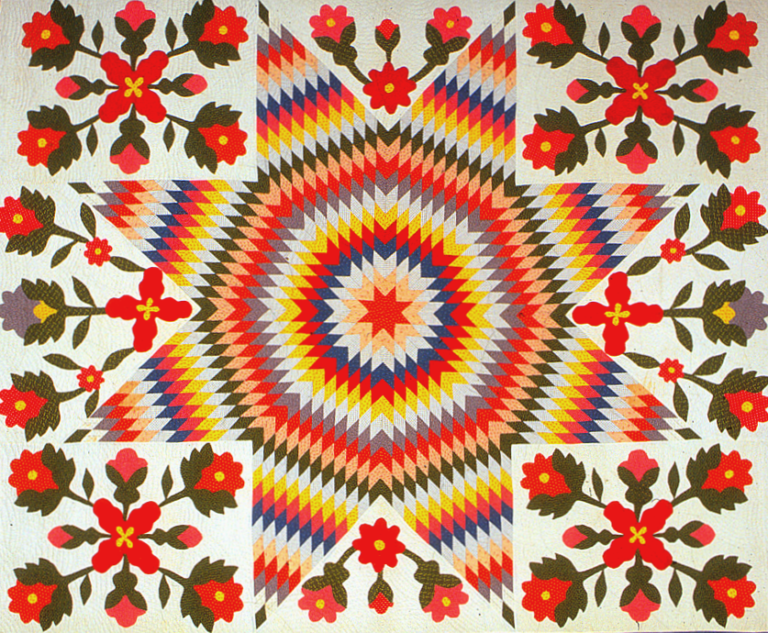
This spring, AIIS will be offering the following courses:
AIIS 201: Introduction to AIIS
Tu/Th 12:40-2pm
E. Mitchell
This course serves as an introduction to the study of American Indian and other Indigenous peoples, including issues related to culture, knowledge, language, governance, colonization, sovereignty, and ongoing revitalization efforts.
AIIS 491: Special Topics (Great Lakes Indigenous Fashion)
Tu/Th 10:20-11:40am
E. Mitchell
This course will examine the role of clothing and wearable art in Indigenous peoples of the Great Lakes. Readings and assignments will explore the history of clothing and adornment, as well as contemporary topics such as powwow regalia, ribbon skirts, and beadwork. Students will develop an understanding of the role of fashion in self-determination, sovereignty, and community resilience
AIIS 801: Indigenous Theories and Methodologies
Tuesdays 3-5:50pm
G. Henry
In this graduate-level seminar, the following topics will be explored: indigenous ways of knowing, transdisciplinary theories and methodologies, indigenous determination, indigenous sovereignties, community-oriented research.
Additionally, the following courses are offered across campus, many of which are taught by our affiliate faculty:
ANP 433: Contemporary American Indian Communities
Tu/Th 2:40-4pm
M. Morgan
American Indian communities today, both reservation and urban, including issues of tribalization, Pan-Indianism, culture change and revitalization, economic development, federal policy, religious freedom, and gender roles.
ANP 452: North American Archaeology
MW 8:30-9:50am
J. Yann
Characteristics and processes of North American archaeology on a regional level. Economic, social, political and technological change through time
REL 306: Native American Religions
Tu/Th 3-4:20
S. Gandhi
Indigenous forms of spirituality among the Native American peoples. Materials from myth, ritual, ceremonial life, and art as ways of obtaining and sharing religious knowledge. Pervasive spiritual and cosmological themes
HST 301: Indigenous-European Encounters in North America
MW 12:40-2:30 (starts February 15, fyi)
D Wheat
European-Indigenous encounters and long-term perspectives on Indigenous and European contact: expectations, stereotypes and mythologies about the Indigenous peoples of North America and Africa within expanding slave systems. Indigenous roles in settler colonial societies in the Caribbean, New France, New England and the Colonial South.
HST 309: American Indian History: Precontact to the Present
Tu/Th 1-2:20pm
N. Parker
Gendered overview of indigenous history in the Americas. Precontact, encounter, intrusion and resistance to settler colonialism, forced removal, reservations, boarding schools, allotment, indigenous sovereignty.
LAW 635D: American Indian Children and the Law
Tu/Th 10:30-11:20
K. Fort
Focus on American Indian children and the law including the implementation, interpretation and understanding of the Indian Child Welfare Act (ICWA).
LAW 635E: Tribal Law
MW 10:30-11:45
E. Fletcher
Survey of the laws that tribes enact to govern themselves.
PHL 850: Social and Political Philosophy
Tuesdays 6-8:50pm
P. Tacuma
This course will be focused on contemporary Indigenous and Black political philosophy. The seminar is open to all graduate students with interests in Indigenous and Black political thought and the histories of Black and Indigenous cultural productions. Likely authors include Linda Tuhiwai Smith, Ngũgĩ wa Thiong’o, Leanne Betasamosake Simpson, Ruth Gilmore, Robert Nichols, Glenn Coulthard, and Shatema Threadcraft.
TE 982: Decolonial, Postcolonial, and Anti-Colonial Theories in Education
Wednesdays 4:10-7:00pm
A. Allweiss
This class is for students across departments and stages in their graduate program interested in thinking alongside theories, movements, and voices, particularly those from the global South, to grapple with critical questions, such as, (1) What are frameworks for exposing and disrupting ongoing systemic colonial and racial violence at a global scale? (2) What kind of decolonial possibilities can be and have been imagined within education? (3) How do we work to dis-invest from modern/colonial violence and habits of being and hold ourselves accountable to decolonial movements and organizing?
WRA848: Cultural Rhetorics
Thursdays 3-5:50pm
K. Arola
This course will explore cultural rhetorics as a practice. Specifically, we will look to ways that cultural rhetorics theory and methodology are situated, with an eye towards how a specific culture’s systems, beliefs, relationships to the past, practices of meaning-making, and practices of carrying culture forward to future generations can afford expansive ways of knowing, doing, and teaching.

